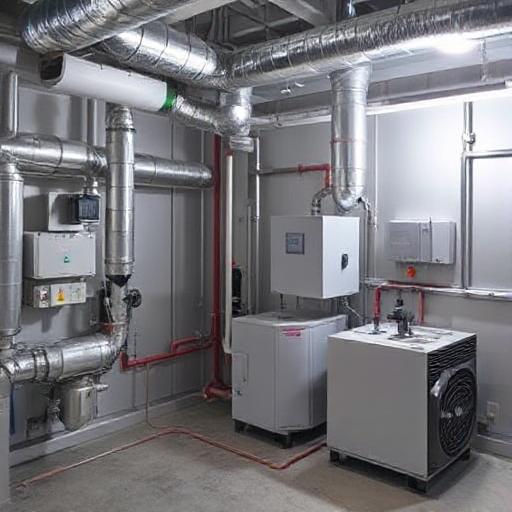Revolutionizing HVAC Humidity Control: The Latest Innovations in Equipment
Welcome to the future of HVAC humidity control! As we move into 2025, the landscape of commercial HVAC systems is evolving rapidly. Driven by the demand for energy efficiency, sustainability, and smart automation, the market is set to grow significantly. In this post, we’ll explore the latest innovations in humidity control equipment that are reshaping the industry and how they can benefit your operations.
Energy-Efficient Dehumidification and Humidification Technologies
With the emphasis on sustainability, new technologies are emerging to improve energy efficiency in humidity control. Adiabatic humidification, high-efficiency steam systems, and low-energy desiccant dehumidifiers are leading the charge. These advancements not only help in meeting sustainability targets but also reduce operating costs significantly.
AI and Smart Automation: The Future of Humidity Management
Imagine a system that predicts indoor humidity levels and adjusts its operations proactively. That’s the power of AI and machine learning in HVAC systems. These technologies are enabling automated humidity management, enhancing comfort and efficiency by learning from occupant behavior.
Ultrasonic Humidifiers: Transforming Data Centers
Data centers are seeing a transformation with the switch from steam to ultrasonic humidifiers. This change has reduced humidification power consumption from 30 kW to under 1 kW, saving an impressive $50,000 annually in operating costs. With a typical ROI under two years, the benefits are clear.
- Energy-efficient dehumidifiers for reduced costs
- Smart humidity controllers for precise management
- Variable speed HVAC technology for tailored comfort
- IoT humidity control for real-time diagnostics
- Energy recovery ventilation for optimal air quality
Ductless HVAC Systems: A Modern Solution
Ductless HVAC systems, such as the Daikin mini-split, offer a modern solution for individualized humidity and temperature zoning. With features like variable-speed compressors and smart sensors, these systems reduce duct-related energy losses and provide adaptive control for enhanced efficiency and comfort.
IoT Integration: The Future is Now
The integration of IoT-enabled HVAC equipment is becoming more common in both commercial and residential buildings. This technology allows for real-time diagnostics, predictive maintenance, and remote humidity monitoring, optimizing energy use and user comfort.
FAQs on HVAC Humidity Control Innovations
What are the benefits of energy-efficient dehumidifiers?
Energy-efficient dehumidifiers reduce operating costs and contribute to sustainability targets by consuming less energy.
How do smart humidity controllers enhance comfort?
Smart humidity controllers adjust operations based on indoor conditions and occupant behavior, ensuring optimal comfort levels.
What role does AI play in HVAC moisture management?
AI enables predictive and automated humidity management, enhancing efficiency and comfort through learning and adaptation.
Why are variable speed HVAC systems popular?
Variable speed systems offer tailored comfort by adjusting speed to meet specific humidity and temperature needs, improving efficiency.
How does IoT improve HVAC systems?
IoT provides real-time data and remote management capabilities, leading to improved maintenance, diagnostics, and energy use.
In conclusion, the HVAC industry is embracing innovations in humidity control that promise greater efficiency, sustainability, and comfort. By integrating advanced technologies such as AI and IoT, along with energy-efficient systems, you can significantly enhance your building’s environment while reducing costs. Ready to upgrade your HVAC system? Explore these innovations and make a positive impact today!
Take the next step: Contact us to learn more about integrating these cutting-edge technologies into your HVAC system.


